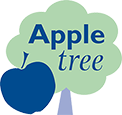Keywords and keyphrases: what, why and how?
I accompanied Chantal to the Build a Better Business event organised by The Late Breakfast yesterday, where Chantal was giving a talk about how to incorporate a marketing strategy into a business plan. I decided to visit the other seminars, and was intrigued by one which was called ‘PPC, SEO and the Long Tail’. Usually acronym-ed jargon like this would suggest something high-flying and technical, but actually it consisted mostly of common sense taken from a different point of view.
Keywords and phrases are words which trigger a response from the search engine spiders (mathematical robots that crawl the web looking for new content to index). They are effective if they are tuned into what people type into the search engines at this moment in time, and you can find this out through the Google Adwords Keyword Tool.
Most small keywords or phrases have a very high response, which mean although there may be several thousands of people searching for it, there are also many thousands of websites containing those keywords. To narrow down the competition, you lengthen your keyphrases to include more elements that are relevant to your visitor’s ‘wants’. For example, ‘holiday cottages’ could be increased to ‘holiday cottages near Bath that accept dogs’, and ‘horse riding’ could lengthen to ‘horse riding stables that offer lessons for beginners near Swindon’.
These keyphrases containing many keywords combined together are more likely to trigger a match in search engine requests. It narrows down the field so you’ll find that there are less websites that offer these complete keyphrases. Do people type so much into the search engine status fields? Yes, they probably do, hoping that at least something will bring up a website that will help them.
But what do you do with these keyphrases? Each should be allocated their own webpage, which acts as its specific landing page. These webpages should be carefully optimised for their keyphrase, by including them in the page title, the metatags behind the scenes, the page’s title and within the words on the page. There are also clever ways to use keyphrases effectively and yet still make the page read well; after all, it’s meant to be for humans to understand and appreciate, not just search engine spiders.
These special keyphrase-induced landing pages should be marketed for full acknowledgement from the visitor, provide plenty of relevant information about the keyphrase’s subject, offer incentivised call to actions to encourage a response, and link up to other like-minded pages for further perusal of your website. In other words, there should be a series of pages that won’t be accessible from your homepage, but act as fly-papers to attract the spiders and therefore the searching visitors craving what you have to offer. Make sure you don’t disappoint them…





